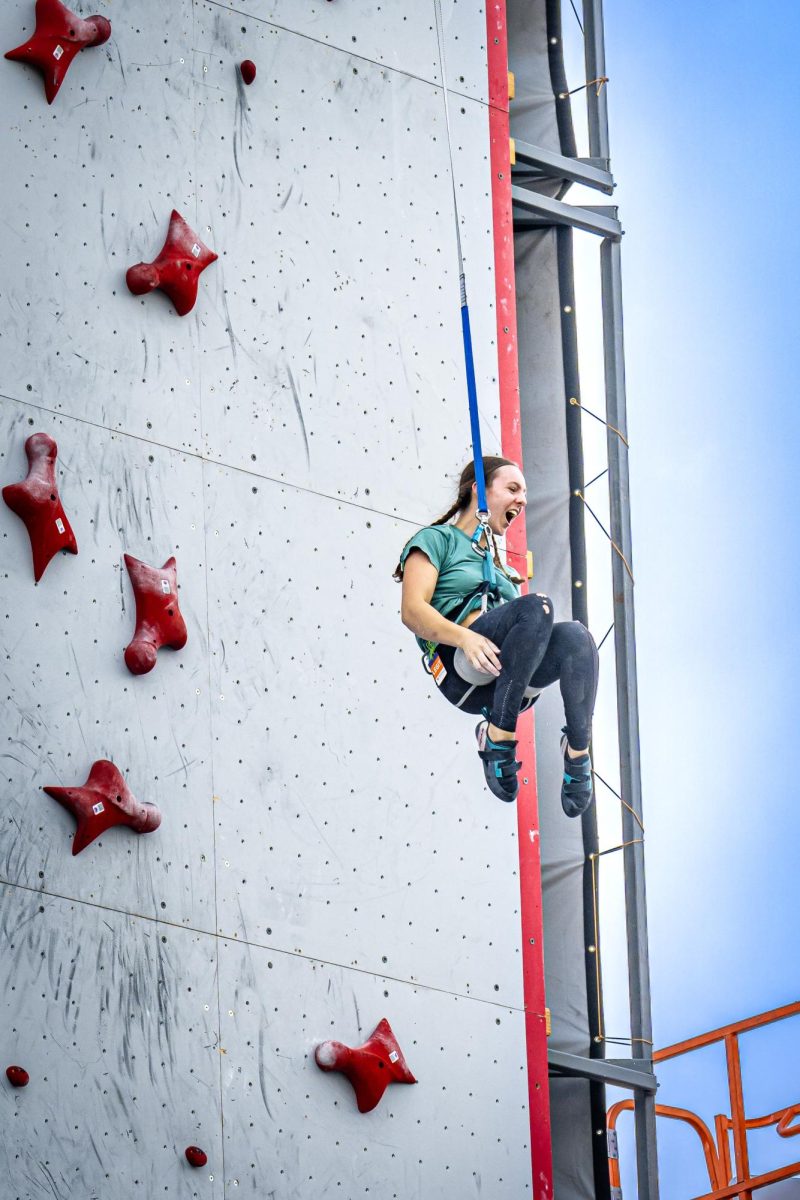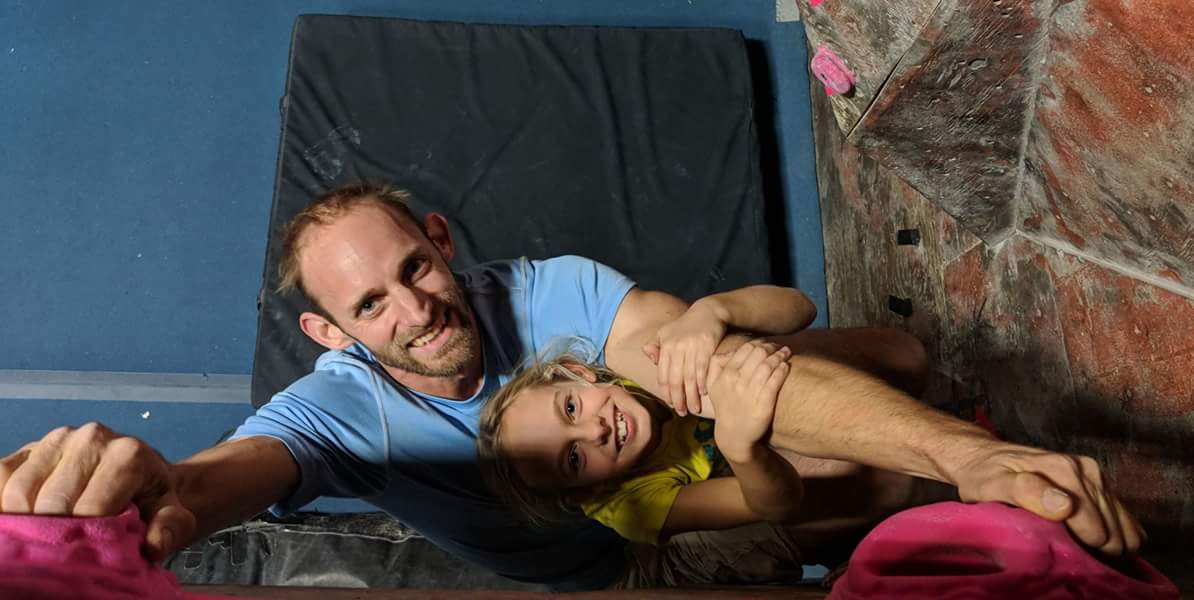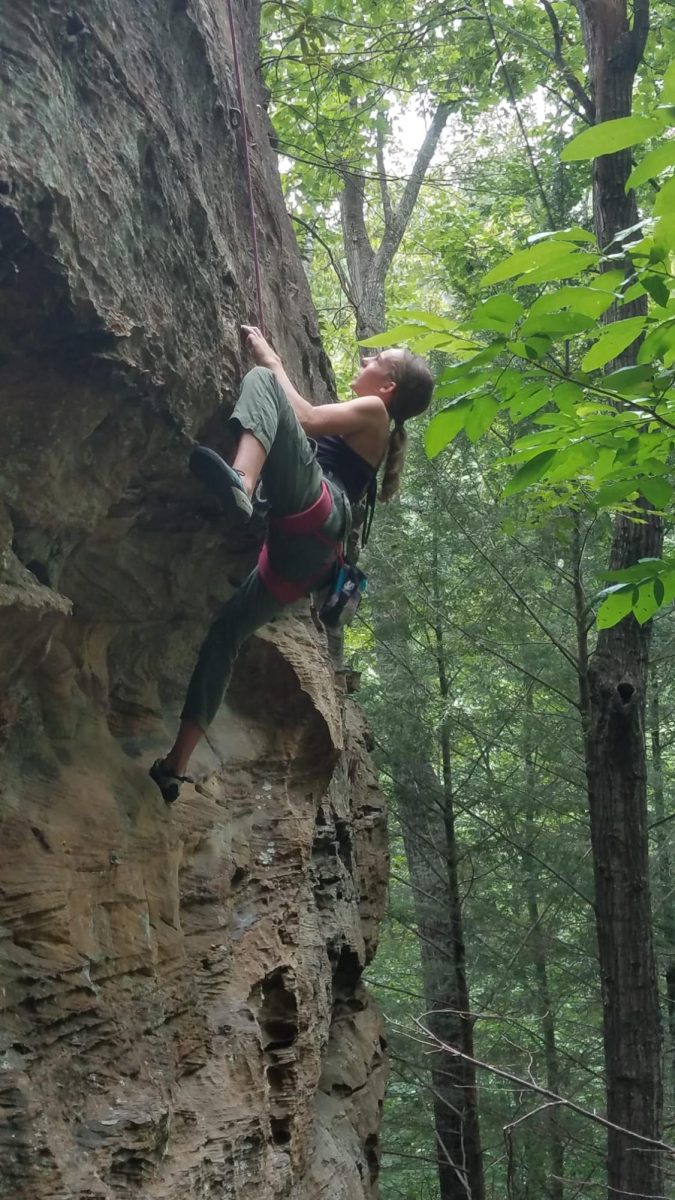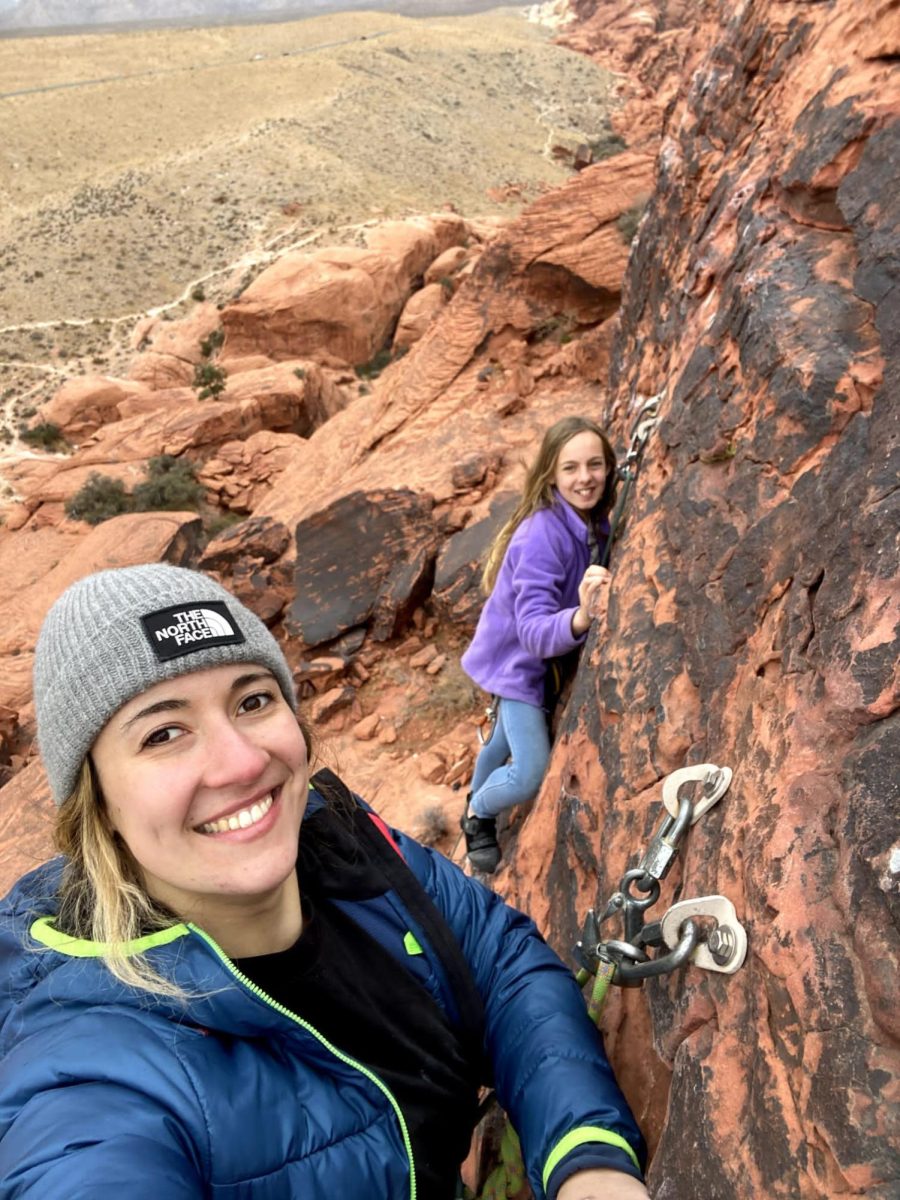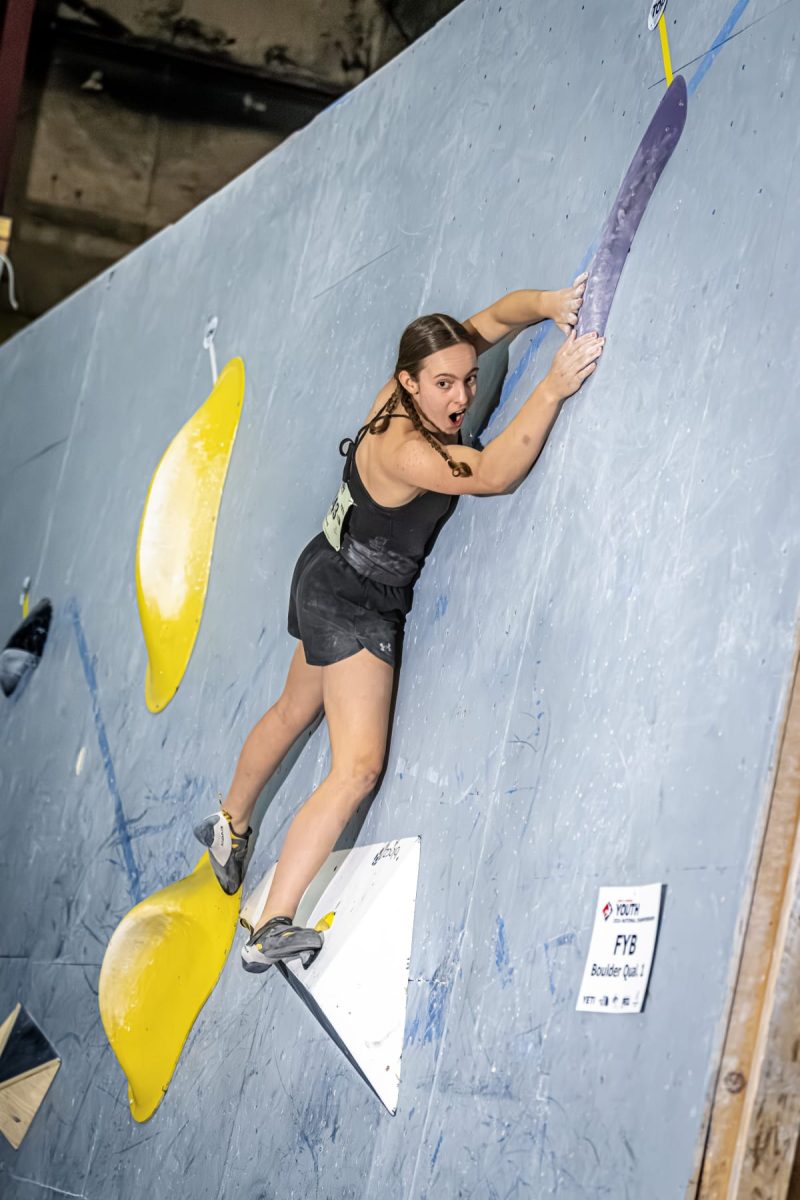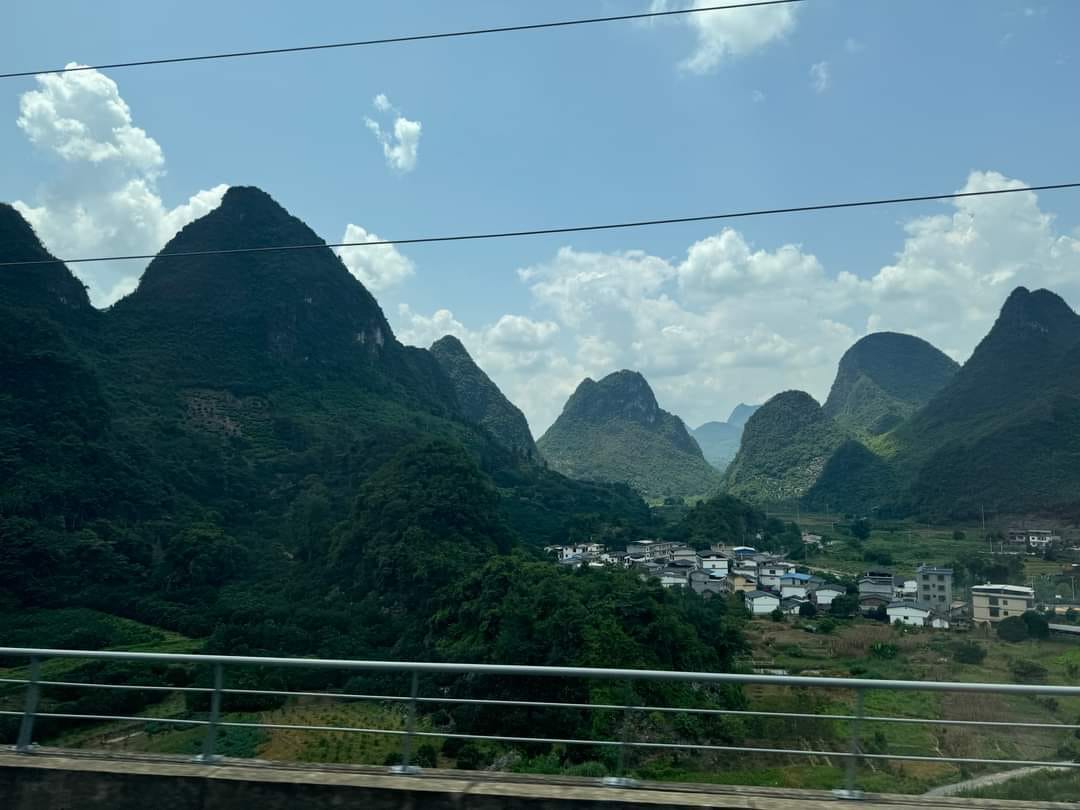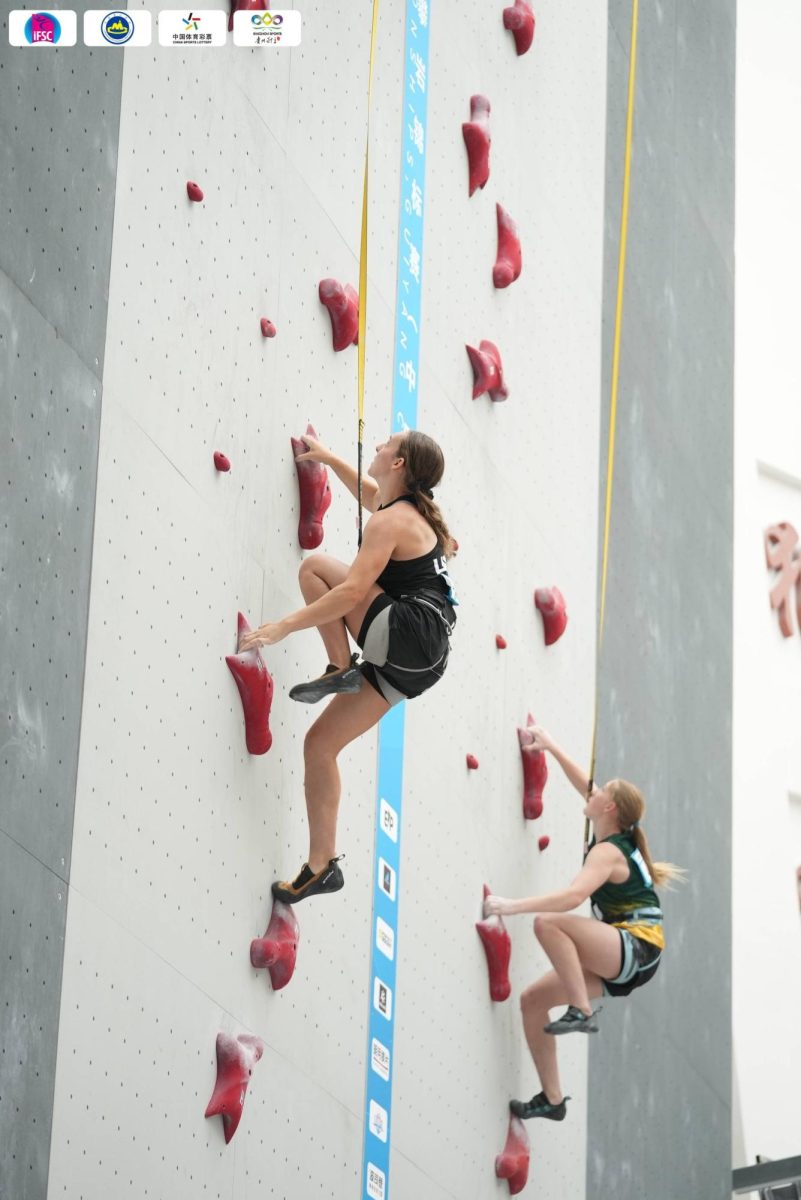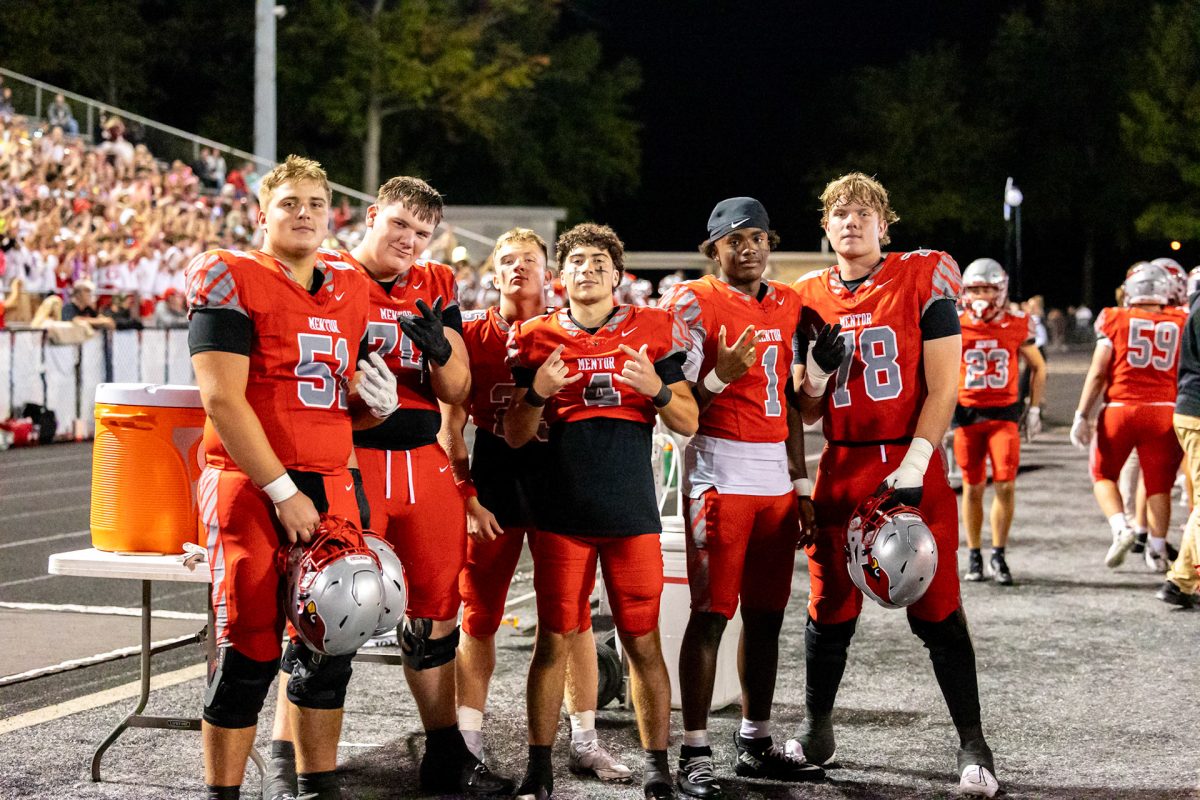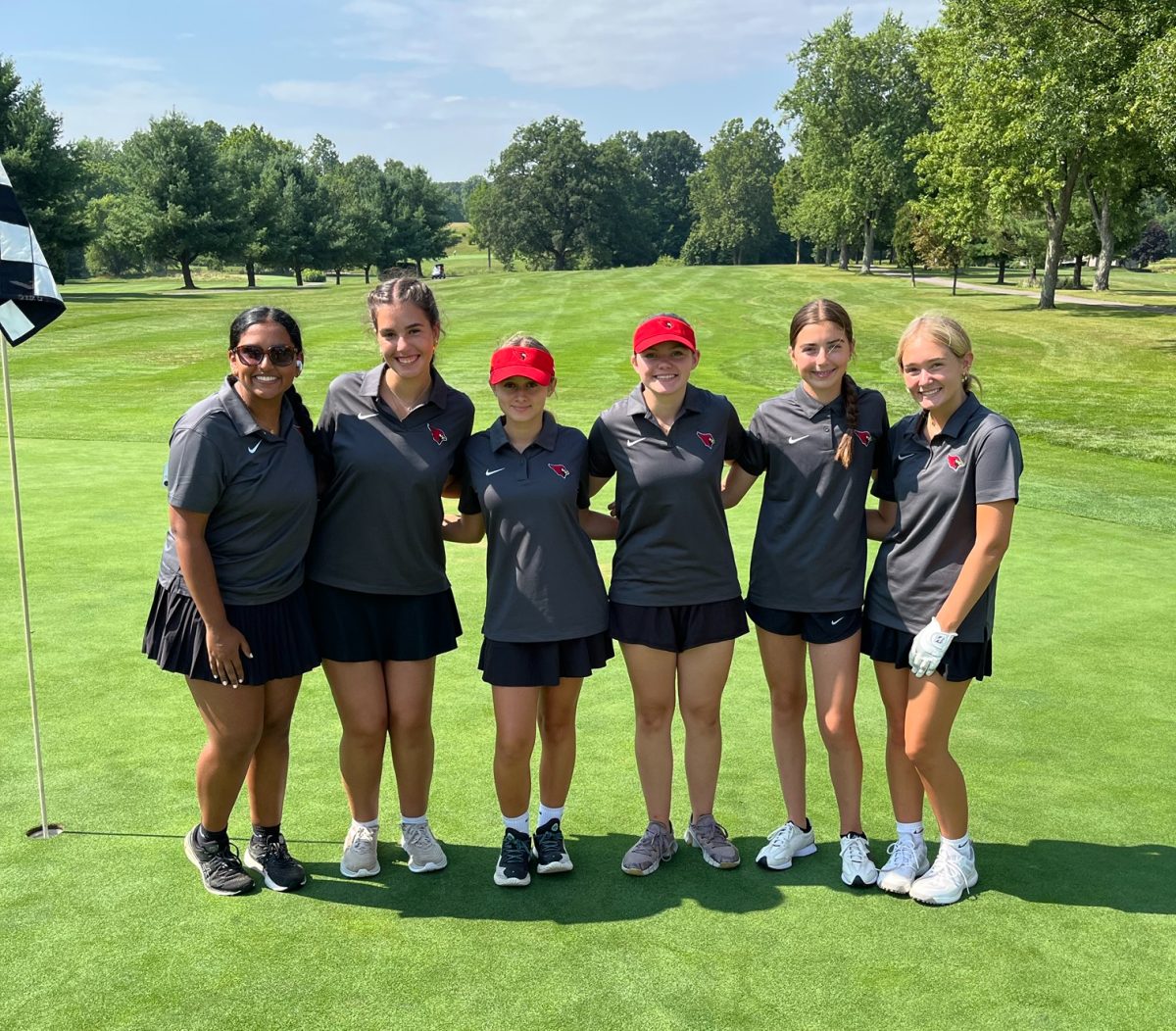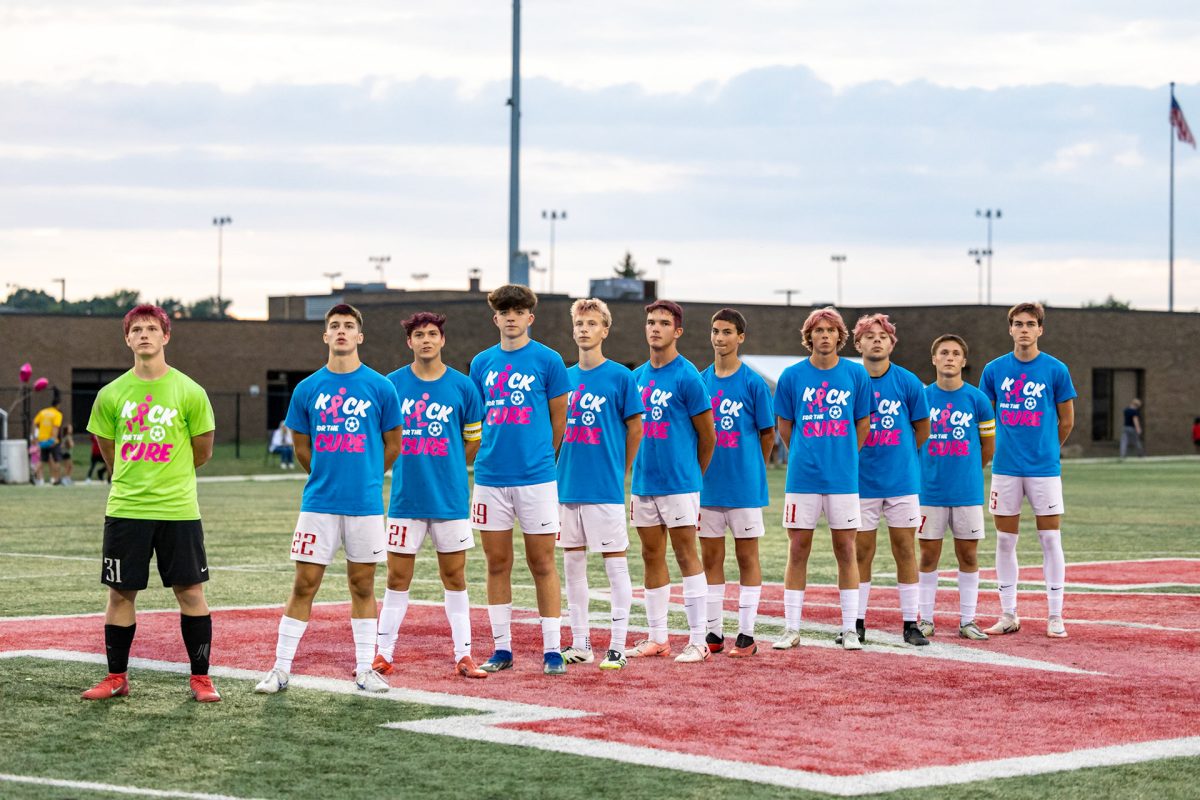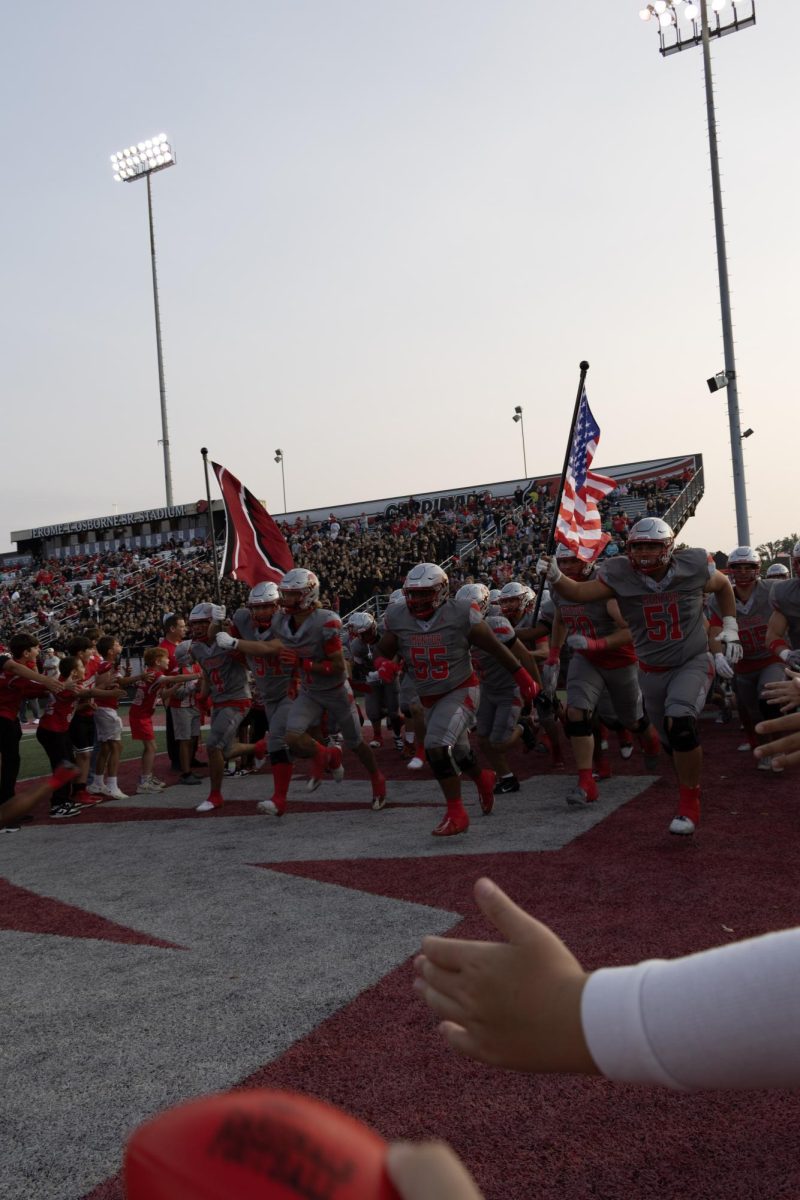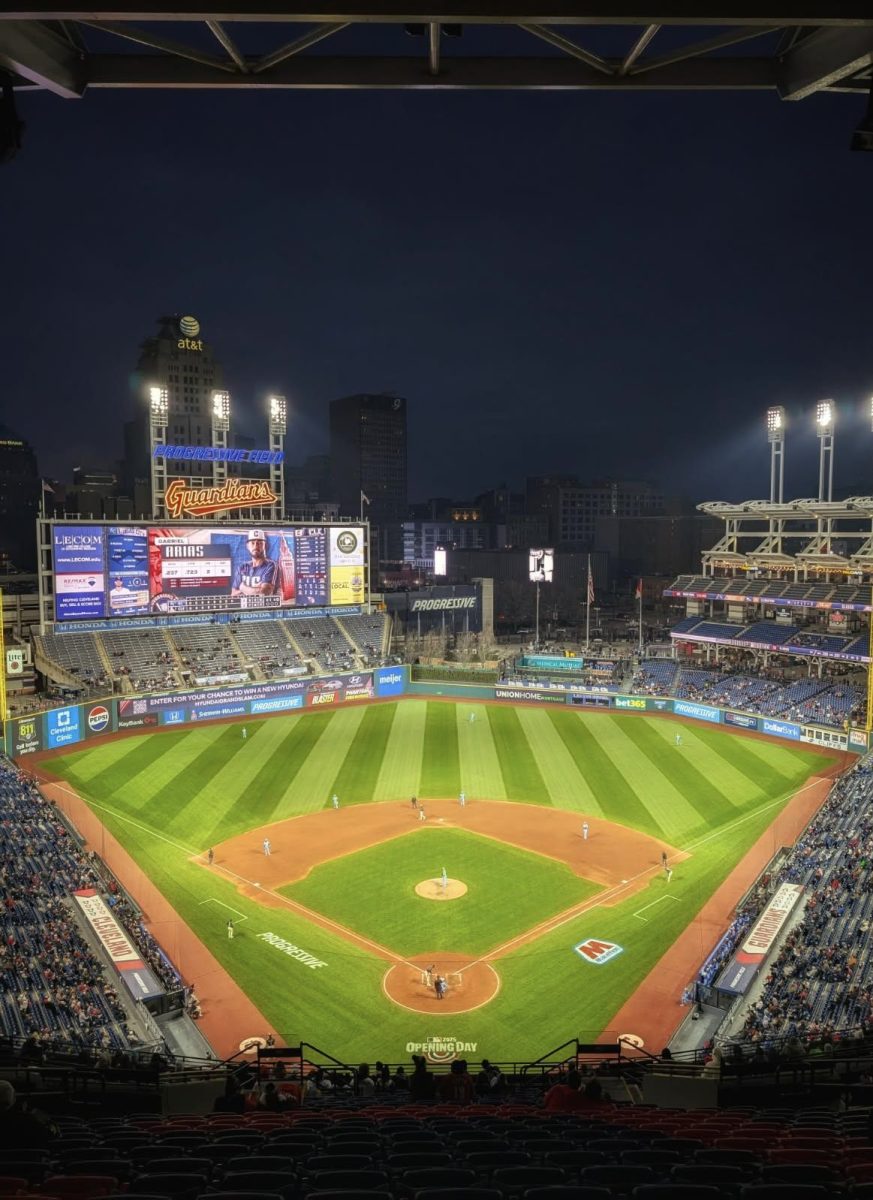Mentor High School junior Bella Wargo wrapped up an impressive speed rock climbing competition in mid-August. The competition, which was held in China, included many passionate youth climbers from all around the world.
Bella put forth a great effort and won 8th place with a time of 8.917. While competing in China, Bella was immersed in much of the rich culture. Cardinal Nation was lucky enough to hear from Bella herself about her upbringing, her personal journey with rock climbing. and her competition in China. Read on for a summary of her experience in her own words:
Growing Up With Rock Climbing
My name is Bella Wargo, and I am a rock climber.
If it weren’t for my dad bringing me to Cleveland Rock Gym (CRG) when I was 7 years old, I probably would’ve described myself as a swimmer, writer, or something else associated with academics that I excelled at. But since the age of 10, rock climbing has been my thing. It’s defined my life more than school, band, or any other activities I have been involved in.
CRG was a dusty warehouse in Euclid, Ohio hidden behind a sketchy scrapyard. The most unsuspecting location for a climbing gym thrived with climbers from Northeast Ohio looking to train in the gym. In fact, established in the ’90s, CRG was one of the first climbing gyms in the U.S. While I wasn’t serious about climbing at the time, I really enjoyed it and would even compete in Boulder League, a community competition hosted by CRG, from a young age.
I climbed there for a few years until the age of 10 when one of the employees suggested I try competition climbing. At the time, I had known nothing about USA Climbing or even what an official competition even looks like. While I was uncertain, my dad encouraged me to try one qualifier competition coming up at a local gym in Shaker Heights. I ended up doing well at the competition and decided to see how far I could go.
Although I lacked experience compared to the majority of the girls in my age group who had begun competing as early as age 5, I fought hard at every competition, and somehow, it kinda worked. At regionals (covering 3-4 states), I placed 9th and made it to divisionals. At divisionals, which covered about ⅓ of the U.S., I barely made finals and then ended up placing 3rd to qualify for nationals which was taking place in Bend, Oregon that February.
I will never forget the look on my parents’ faces as they realized they had about 2 days to book plane tickets to Oregon. It was a dilemma they did not expect me to put them in based on my performance in qualifiers the day before where I barely made finals.
It wasn’t until that trip that I discovered the true beauty of outdoor climbing. After I competed, we spent the next couple of days climbing in Smith Rock, a state park located near Redmond. I had never felt so free as I ascended a variety of routes and saw the beautiful landscape below me. Climbing outside had never felt more natural and exhilarating.
Since then, I have loved climbing outside at Red Rocks in Nevada as well as the New and Red River Gorge (two closer locations which I hope to climb at more often next year).
Competition Experience
Over the next 5 years, I continued to compete at more high level competitions, and at the age of 12 I began to speed climb. At this point, CRG had unfortunately closed during COVID, and I had joined the youth climbing team at Shaker Rocks in Shaker Heights, OH. Shaker happened to have a 10 meter portion of the full standardized speed wall, and out of curiosity I started to do some runs at practices.
Standing at a staggering 4 ‘7, I could not reach the start. Due to my need to jump to the start holds in combination with my lack of power, I hit a plateau at 12 seconds. After growing a bit more in the next year, I improved before plateauing at 8 seconds. To my surprise, I placed 4th overall in FYC (age 11-12) speed that year at youth nationals, which involved a very altered version of the speed wall for younger athletes.
Being so agonizingly close to a podium finish was frustrating, but more than anything, it motivated me. I continued to train for nationals the year after, where I had now moved up into an older age category and had to compete on the full 15 meter speed wall. Due to never being able to work on the top 5 meters of the speed wall, I was at a significant disadvantage. Although I ran a personal record on almost every run at nationals, it was not enough for a podium.
Leading up to the next bouldering and lead season that fall, a lot had changed. I had left the Shaker Rocks climbing team to train on my own, and I had shifted completely away from speed climbing, not even touching the 10 meter wall for months. This year at nationals, I had managed to qualify for all 3 disciplines (boulder, lead, and speed), so I ran into a dilemma of what to prioritize in my training. I wanted to train speed, but I had neither a knowledgeable coach nor a way to practice the top 5 meters of the speed wall. Despite this, I still decided to compete in speed at nationals. After cramming in the bulk of my training less than one month before nationals, I was relatively unprepared.
Upon arrival in Salt Lake in early July, I had a brief speed session at Momentum Millcreek a couple of days before competing. To my surprise, I ran my first run on a 15 meter wall in under 9 seconds! A few minutes later, I ran another PR of 8.87 seconds. It seemed as if 2023 Youth Nationals was going to repeat itself, only now I was nearly 2 seconds faster. It just so happened that I was right. I took 2nd place at youth nationals this past July as a second year FYB (youth female- birth year 2009/10) and ran a PR in my final race of 8.679 seconds.
New Opportunity in China
So here I am at 15 years old with five years of national competitions under my belt and a podium finish at 2024 USA Climbing Youth National Championships in speed climbing. What’s next? Well, the answer is IFSC (International Federation of Sport Climbing) Youth World Championships. Where?
Well… China.
My dad once again found himself in the same position as when I first unexpectedly made it to nationals at ten years old. We now only had less than two weeks to book airfare and a mere six days to submit an athlete interest form declaring my commitment to represent the USA at Youth Worlds. Fortunately, with the support from the community towards a gofundme, the help of some friends with logistics, and a woman in Chinatown who provided us with a last minute visa service, we made it work.
From here, Cardinal Nation also had the pleasure of getting more insight from Bella Wargo by asking our own questions to her directly about IFSC and China in an interview. Here is what we learned:
Cardinal Nation: What was your training routine to prepare for Youth Worlds? Did it change from your typical routine?
Bella: My training plan was similar to the training I was doing prior to nationals in July. I usually train all three disciplines (boulder, lead, speed), so I did shift my training more towards speed since that’s what I competed in at worlds. I had recently switched my beta after nationals, so I had less than a month to commit to re-learning part of the speed route. My day to day training generally consisted of workouts to train power in my legs and pulling strength in my upper body, as well as spending hours at the climbing gym refining my micro-beta and working on my main beta change which involved skipping a hold towards the top of the first 10 meters of the route.
Cardinal Nation: What did your mental preparation look like and how did that affect your performance?
Bella: Mentality was one of my greatest weaknesses leading up to nationals that I had to work on a ton. After overcoming some barriers previously, I knew that some of those struggles would come back when competing at worlds due to the new environment and extra pressure. To simulate the pressure I would face at worlds, I spent about 30 minutes at the beginning of most of my training sessions simulating a mock-competition. I would have two qualifier runs with five minutes of rest in between, and if I had a training partner, I would also simulate a world cup finals round. During these times most of my focus was on my pre-climb routine and ability to clear my mind before stepping up to the wall. If one distracting thought crosses my mind while I am walking up to the starting pad, the likelihood of a slip or an imperfect run dramatically increases.
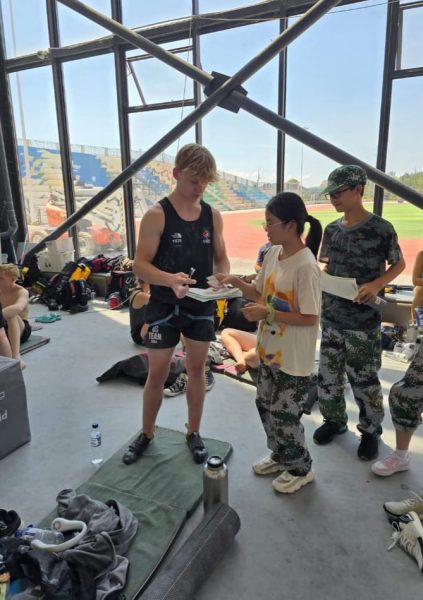
Cardinal Nation: What did you think about before your runs?
Bella: Before my runs I tried to only focus on climbing and block out external stimuli. However, I found it difficult to concentrate in a new and slightly intimidating environment while I was surrounded by the best climbers from around the world. I ended up being less focused than normal before my runs, and I even found myself having conversations in my head to try to calm myself down. Ultimately, this distracted me even more and caused slips in most of my runs.
Cardinal Nation: Did you do any training in China before competing?
Bella: Yes, we ended up training at an “experimental school” a couple of days before the competition. This was the only nearby location with a speed wall and a timing system. It was basically a local primary school that happened to have a condensed climbing gym with a speed wall. Athletes from a variety of countries were practicing speed at the same time, so it was cool to make friends with people like Jemma, a South African girl competing in my category, and Salvador, a Chilean athlete who had only been climbing for two years prior to competing at IFSC youth worlds. In addition to meeting new people from countries around the world, the school immersed us into the reality of Chinese culture for children and young adults. Across from the gym was a field where dozens of Chinese children (average age 8-10) were performing military drills with firearms and yelling in unison to an instructor who seemed to be a teacher at the school. Some of the children later came over to some of the American athletes asking for autographs in admiration of their blonde hair and muscular stature.
Cardinal Nation: How was the USA youth team structured?
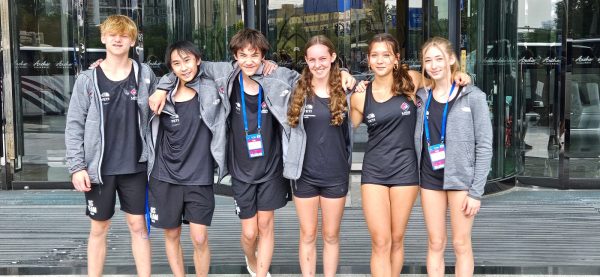
Bella: The USAC youth national team is composed of the top three athletes across three age categories for men and women at youth nationals. These athletes gained eligibility to compete at elite level competitions in the U.S. as well as IFSC youth world championships that year. There are five coaches provided by USA Climbing that help prepare athletes at youth worlds during the days leading up to each individual competition. Unlike most sport country federations, American athletes travel alone and do not have much assistance when it comes to navigation and arranging transportation at worlds.
Cardinal Nation: China has a rich and unique culture, so what was the environment like when you arrived?
Bella: When I first stepped out of the airport in Guiyang, China, it was 2:30 a.m. and while exhausted, I still immediately noticed some differences in China compared to the U.S. The first thing that stood out to me was the security. There were very few police and/or security guards near the airport and in the city, but cameras were everywhere. When we were being driven from the airport to our hotel, my dad noticed that pictures were being taken almost every mile on the freeway. Upon arriving at our hotels, a face scan was required to check-in. Despite speaking minimal English, everyone we encountered upon arrival was very helpful and kind.
Cardinal Nation: What major cultural differences did you notice?
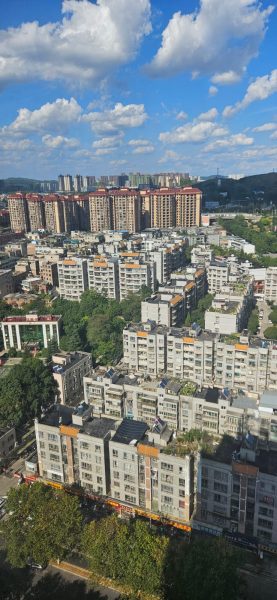
Bella: One of the main differences was the way that most families lived. Many families had a small store or restaurant that was also clearly where they lived. Seeing the limited space that many children had to grow up made me appreciate the resources I have. I also noticed that there were numerous abandoned half-way constructed apartment complexes just in the area surrounding our hotel. Apparently, families gave away their life savings to pay for an apartment that was going to be constructed, but during construction, the government ran out of money to loan to the construction companies who had already committed to thousands of contracts. This left thousands of Chinese citizens and families without money or a home. Despite many harsh/not ideal living conditions, everyone we encountered was very welcoming and kind.
Guiyang is not a major city in China, so very few people spoke English. Although there was clearly a language barrier between us, everyone throughout our entire trip was super helpful. One man even offered to pay for our dinner when we bought food from his restaurant because he was so excited to be hosting Americans for the first time.
Cardinal Nation: How did you communicate while in China?
Bella: Communication was complicated due to the fact that the Chinese Government only allows for one messaging app called WeChat to be used. We ended up downloading two VPNs, only one of which ended up working, and then we were able to use our normal messaging apps most of the time. However, we still tended to have issues accessing the internet at our hotel, so completing homework was a challenge. It’s crazy to think about the fact that the average Chinese citizen does not even have access to Google.
Cardinal Nation: How did the location you competed at compare to those in the U.S.?
Bella: The venue I competed at in China was specifically built to host large sporting events, like IFSC climbing world cups. This is very different when compared to competitions in the U.S. which are generally held at any climbing gym that has enough space and is willing to host an event. This year, youth nationals were hosted at the USAC Training Center, which included an outdoor speed wall. This posed very different challenges, like intense heat, that was not an issue at the indoor venue in China.
Cardinal Nation: What did you learn about some of the other countries competing at youth worlds?
Bella: Many countries at worlds had much smaller federations than the U.S., so they often traveled together to worlds and knew their coaches personally. For example, we saw the entire Indonesian team who had more than a dozen athletes at worlds in the airport. Although they are becoming a large and successful federation, they are relatively new to IFSC and have much less resources for training. Another interesting thing I learned was that many youth athletes around the world spoke English. While some only spoke their native language, there were people from Japan, China, Switzerland, Germany, and Slovenia that spoke good English.
Cardinal Nation: Did you meet your expectations as far as how you performed?
Bella: Although it was my first ever international competition, I knew that I wanted to make finals (top 16). I ended up accomplishing this and placing 8th by winning my first knockout race in finals. However, I was still disappointed with my overall performance since a podium place was well within my potential, and I did not have clean runs, especially in qualifiers. My fastest run happened to be a practice run, so I feel like I was not able to show my best performance.
Cardinal Nation: What new opportunities have arisen as a result of your competition and training?
Bella: As a result of my performance at youth worlds, I became eligible for elite competitions in the U.S.. I just attended my first one, elite open nationals, in mid-October. It was a cool experience to compete against an Olympian, and I even made finals and ran a PR. I am also being recruited for pole vaulting by one of the track coaches at MHS, so I may consider trying that out in the spring. Ironically, there are multiple climbers I know that are also pole vaulters, so it’s possible that I may enjoy it.
Cardinal Nation: What are your main takeaways from your competition?
Bella: My takeaways are mainly about my mentality at competitions and my pre-climb routine right before my runs. Basically, I need to find a way to lock in and not succumb to the pressure at comps or be distracted by my surroundings before I climb. Another main takeaway: Dumplings taste good.
Cardinal Nation: Are you taking a break from training after worlds?
Bella: After worlds I had my first elite competition in October, but now I will be making modifications to my training. I will shift slightly away from speed to focus on bouldering for the upcoming competition season. I will still work on my beta a couple of times a week to hopefully master the Tomoa skip by the time speed competitions start again next year.
Cardinal Nation: What advice do you have for people of any age getting involved in climbing?
Bella: For beginner climbers, I would say the most important thing is to climb as much as possible. You do not need to worry about strength training yet, just climb and develop technique. Focus on your feet more than your hands, and persevere through challenges. This sport is mostly based on learning from failures, even for more advanced climbers.
Well there you have it. Bella Wargo is truly an amazing girl. Her journey from just rock climbing as a hobby to being one of the best youth speed climbers in the state is astonishing. To sum up the skill that she exerts has is truly a difficult task. Just as she advises others, she overcomes ups and downs that would have been enough to block many rock climbers from their future in the sport. Bella, on behalf of all of Mentor we are all beyond proud of you and can’t wait to see where the future will lead!

